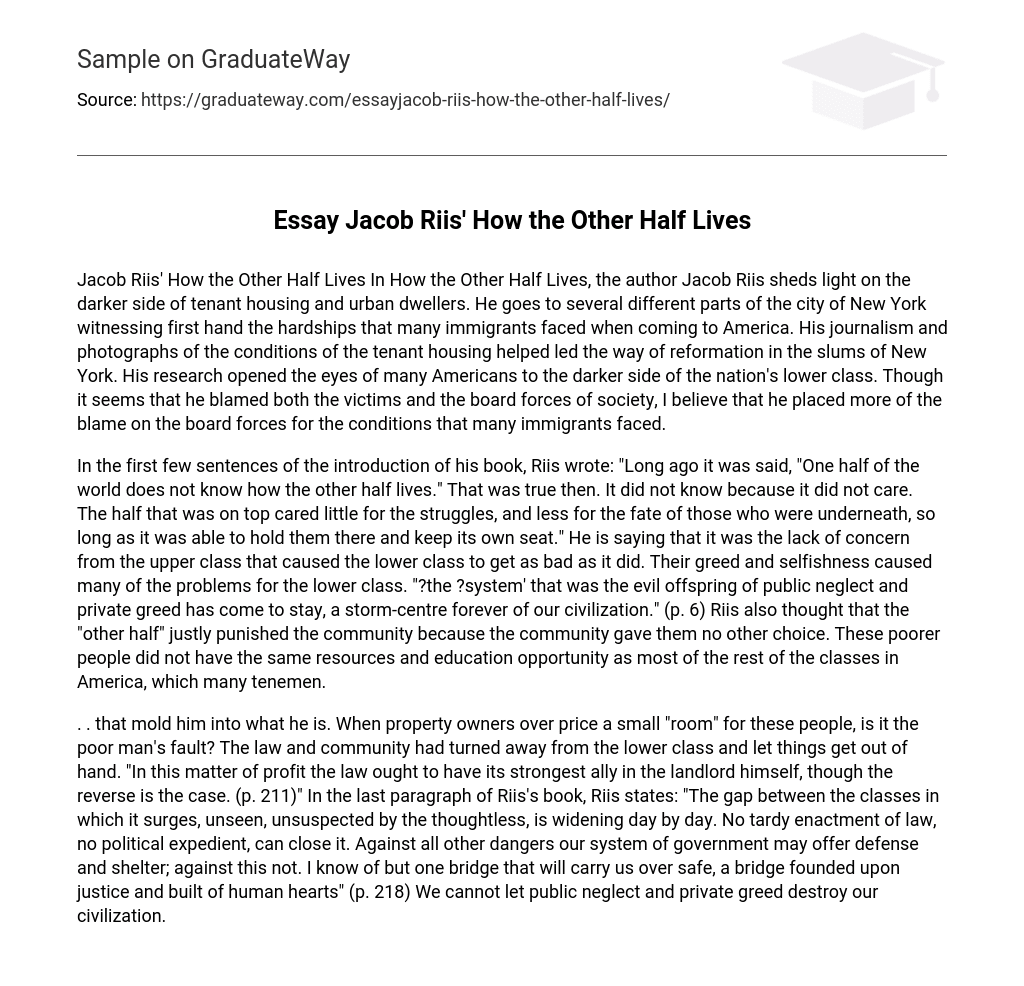Jacob Riis’ How the Other Half Lives presents the challenges that urban dwellers in tenant housing encounter. Riis extensively explores various areas of New York City, personally witnessing the hardships experienced by immigrants upon arriving in America. Through his journalism and photographs, Riis exposed the appalling conditions of these tenements, leading to reforms in New York’s slums. His research awakened many Americans to the harsh realities faced by the lower class. Although some argue that Riis held both victims and societal forces accountable, I believe that he primarily attributed responsibility to the powerful forces behind the conditions endured by numerous immigrants.
In the introduction of his book, Riis begins by stating that long ago it was commonly acknowledged that half of the world was oblivious to how the other half lived. This lack of awareness stemmed from a lack of care from the upper class towards the struggles and fate of those beneath them. The upper class simply wished to maintain their own privileged position, regardless of the consequences for those below. This uncaring attitude resulted in a society where public neglect and private greed created an unjust system, which Riis believed was firmly entrenched in civilization. Additionally, Riis argued that the lower class was compelled to punish the community because they were left with no other options. These individuals lacked the same resources and educational opportunities as other social classes in America, which transformed many into tenemen.
When property owners overprice a small “room” for these people, is it the poor man’s fault that molds him into what he is? The law and community have turned away from the lower class and allowed things to get out of hand. “In this matter of profit, the law ought to have its strongest ally in the landlord himself, though the reverse is the case. (p. 211)” In the last paragraph of Riis’s book, Riis states: “The gap between the classes in which it surges, unseen, unsuspected by the thoughtless, is widening day by day. No tardy enactment of law, no political expedient, can close it. Against all other dangers our system of government may offer defense and shelter; against this not. I know of but one bridge that will carry us over safe, a bridge founded upon justice and built of human hearts” (p. 218) We cannot allow public neglect and private greed to destroy our civilization.





